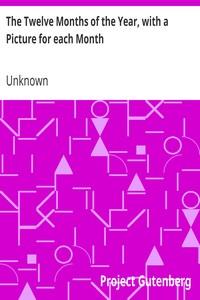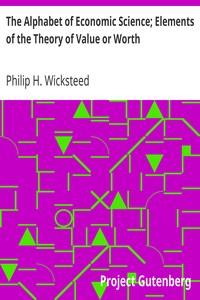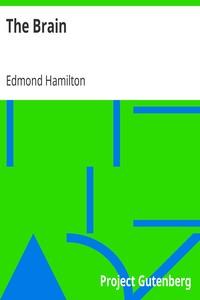Read this ebook for free! No credit card needed, absolutely nothing to pay.
Words: 54956 in 12 pages
This is an ebook sharing website. You can read the uploaded ebooks for free here. No credit cards needed, nothing to pay. If you want to own a digital copy of the ebook, or want to read offline with your favorite ebook-reader, then you can choose to buy and download the ebook.
I THE INTELLIGENCE OF WOMAN 1
II FEMINIST INTENTIONS 61
V THE DOWNFALL OF THE HOME 130
VI THE BREAK-UP OF THE FAMILY 165
THE INTELLIGENCE OF WOMAN
Men have been found to deny woman an intellect; they have credited her with instinct, with intuition, with a capacity to correlate cause and effect much as a dog connects its collar with a walk. But intellect in its broadest sense, the capacity consecutively to plan and steadfastly to execute, they have often denied her.
The days are not now so dark. Woman has a place in the state, a place under, but still a place. Man has recognized her value without coming to understand her much better, and so we are faced with a paradox: while man accords woman an improved social position, he continues to describe her as illogical, petty, jealous, vain, untruthful, disloyal to her own sex; quite as frequently he charges her with being over-loyal to her own sex: there is no pleasing him. Also he discerns in this unsatisfactory creature extreme unselfishness, purity, capacity for self-sacrifice. It seems that the intelligence of man cannot solve the problem of woman, which is a bad sign in a superior intelligence. The trouble lies in this: man assumes too readily that woman essentially differs from man. Hardly a man has lived who did not so exaggerate. Nietzsche, Schopenhauer, agreed to despise women; Napoleon seemed to view them as engines of pleasure; for Shakespeare they may well have embodied a romantic ideal, qualified by sportive wantonness. In Walter Scott, women appear as romance in a cheap edition; Byron in their regard is a beast of prey, Doctor Johnson a pompous brute and a puritanical sensualist. Cervantes mixed in his romantic outlook a sort of suspicious hatred, while Alexandre Dumas thought them born only to lay laurel wreaths and orange blossoms on the heads of musketeers. All, all--from Thackeray, who never laid his hand upon a woman save in the way of patronage, to Goethe, to Dante, to Montaigne, to Wellington--all harbored this curious idea: in one way or another woman differs from man. And to-day, whether we read Mr. Bernard Shaw, Mr. George Moore, M. Paul Bourget, or Mr. Hall Caine, we find that there still persists a belief in Byron's lines:--
"What a strange thing is man! And what a stranger Is woman!"
Almost every man, except the professional Lovelace , believes in the mystery of woman. I do not. For men are also mysterious to women; women are quite as puzzled by our stupidity as by our subtlety. I do not believe that there is either a male or a female mystery; there is only the mystery of mankind. There are to-day differences between the male and the female intellect; we have to ask ourselves whether they are absolute or only apparent, or whether they are absolute but removable by education and time, assuming this to be desirable. I believe that these differences are superficial, temporary, traceable to hereditary and local influences. I believe that they will not endure forever, that they will tend to vanish as environment is modified, as old suggestions cease to be made.
And there are variations of these four cases! A man investigating woman's points of view often finds the response more emotional than intellectual. Owing to the system under which we live, where man is a valuable prey, woman has contracted the habit of trying to attract. Even aggressive insolence on her part may conceal the desire to attract by exasperating. These notes must, therefore, be taken only as hints, and the reader may be interested to know that they are based on the observation of sixty-five women, subdivided as follows: Intimate acquaintance, five; adequate acquaintance, nineteen; slight acquaintance, forty-one; married, thirty-nine; status uncertain, eight; celibate, eighteen. Ages, seventeen to sixty-eight .
In this sense it can probably be said that no woman has ever been an intellectual. A few may have pretensions, as, for instance, "Vernon Lee," Mrs. Sidney Webb, Mrs. Wharton, perhaps Mrs. Hetty Green. I do not know, for these women can be judged only by their works. The greatest women in history--Catherine of Russia, Joan of Arc, Sappho, Queen Elizabeth--appear to have been swayed largely by their passions, physical or religious. I do not suppose that this will always be the case. For reasons which I shall indicate further on in this chapter, I believe that woman's intellect will tend toward approximation with that of man. But meanwhile it would be futile not to recognize that there exist to-day between man and woman some sharp intellectual divergences.
One of the sharpest lies in woman's logical faculty. This may be due to her education ; it may proceed from a habit of mind; it may be the result of a secular withdrawal from responsibilities other than domestic. Whatever the cause, it must be acknowledged that, with certain trained exceptions, woman has not of logic the same conception as man. I have devoted particular care to this issue, and have collected a number of cases where the feminine conception of logic clashes with that of man. Here are a few transcribed from my notebook:
Free books android app tbrJar TBR JAR Read Free books online gutenberg
More posts by @FreeBooks


: The Twelve Months of the Year with a Picture for each Month. Adapted to Northern Latitudes by Unknown - Seasons Juvenile literature; Christian life Juvenile literature; Months Juvenile literature









